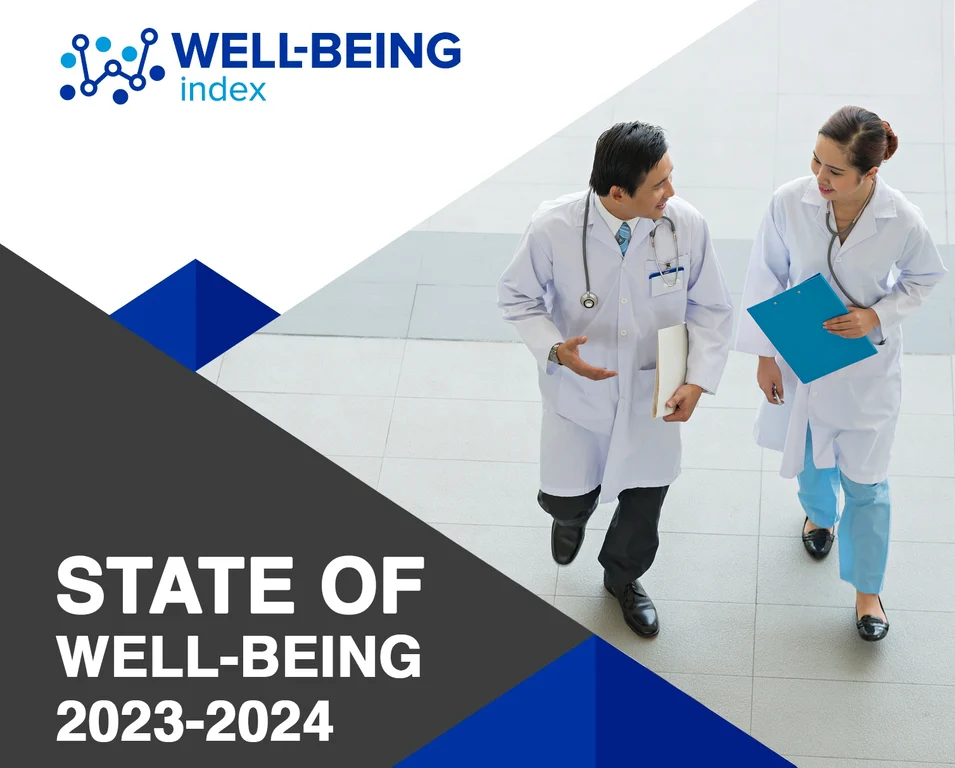Over the past year, hundreds of healthcare organizations turned to the Well-Being Index to get the most advanced data, support, and strategies needed to foster a workplace culture of wellness.
This State of Well-Being Report is a comprehensive analysis of the data gathered from 79,000+ Well-Being Index assessments taken in 2023, and is designed to be your go-to resource for well-being statistics among healthcare professionals.
Fill out the form to explore your free State of Well-Being 2023-2024 Report.
